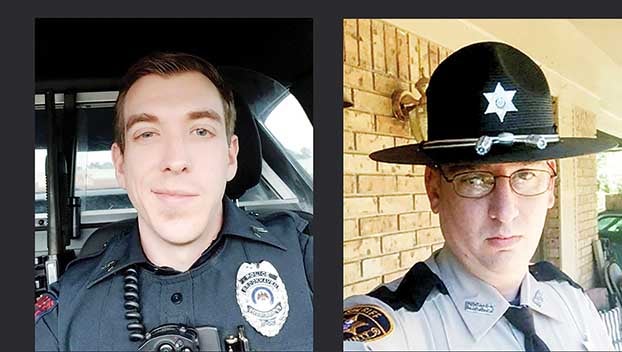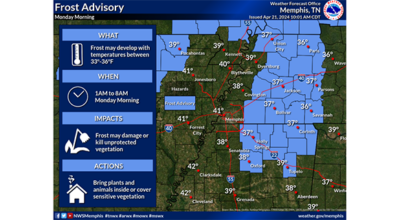Man accused of gunning down two Mississippi cops doesn’t want jury to know he’s a felon
Published 9:05 pm Tuesday, September 14, 2021
Pre-trial motions were heard this week in the capital murder case of a man accused of killing two Brookhaven Police officers in 2018.
Marquis A. Flowers appeared before Special Judge Richard McKenzie Tuesday morning in Lincoln County. Flowers, charged with capital murder in the September 2018 shooting deaths of BPD Officer James White and Cpl. Zach Moak, was present in a yellow jumpsuit marked as property of Rankin County Jail.
Motions were presented from defense on several matters by attorney Kelsey Rushing.
The primary motion was to sever the charges — to separate the single charge of possession of a firearm by a convicted felon from the two charges of capital murder.
Rushing argued the inclusion of the lesser charge would unfairly prejudice the jury because it would present the fact that Flowers had at least one previous felony conviction — something that would otherwise be inadmissible in a court case.
“It would backdoor the fact of a prior conviction (but) these prior convictions under any other condition would be inadmissible, and were non-violent crimes — property crimes, car thefts, breaking into cars, stealing cars,” Rushing said.
Assistant District Attorney Brendan Adams argued against the motion, saying the particulars of this case were such that the charges were interconnected and should not be separated.
“In this case, the very firearm used to murder the police officers was the firearm in his possession,” Adams said.
Adams said a case heard by the Supreme Court — Corley vs. State — laid out a three-prong test for severity: (1) the amount of time between counts — simultaneous in this case, Adams said; (2) whether evidence in one count is admissible in other counts — it is in this case, Adams said; and (3) are the counts interwoven? Adams argued they “clearly are.”
McKenzie denied the motion to sever.
Other presented motions included a matter of agreement on wording of a jury questionnaire. The questionnaire will be presented to prospective jurors and used in part to pare down the pool for selection. Rushing and Adams agreed to reword portions to the satisfaction of both the defense and the state.
Another motion was made regarding alleged gruesome photographs and/or video. Rushing asked Judge McKenzie for permission to review all such evidence the state planned to present in court prior to it being submitted in a courtroom setting for admission or exclusion.
“The question is what photos or videos may be overly prejudicial,” Rushing said. “We have typically agreed to sit down with the state and make arguments for this … to state our objections, if needed, at that time.”
Adams acknowledged this was the state’s plan and McKenzie approved the motion, “under advisement.”
Rushing also asked for a 24-hour cooling off period, if Flowers is found guilty, before the jury made sentencing recommendations. Both McKenzie and Adams said they found the motion to be premature. Upon Adams’ recommendation, McKenzie rule the court would determine the proper cooling off time period at that time if a guilty verdict is returned.
The defense asked that in addition to a general voir dire of potential jury members, individual voir dire be granted, as well. This preliminary examination of a juror by counsel was granted with no objection.
Motions were also submitted as a matter of record that the state would release any evidence it had not already provided and would continue to do so as the state received evidence. Adams responded all evidence to this point had been shared, and the state would continue to do so.
Court was recessed until 1 p.m. Oct. 7, when any additional motions must be presented.
Jury selection for the trial is set to begin Nov. 8 in Lafayette County, barring any further delays. The jury will then be brought to Pike County for trial.
District Attorney Dee Bates has previously said he will pursue the death penalty in this case.






